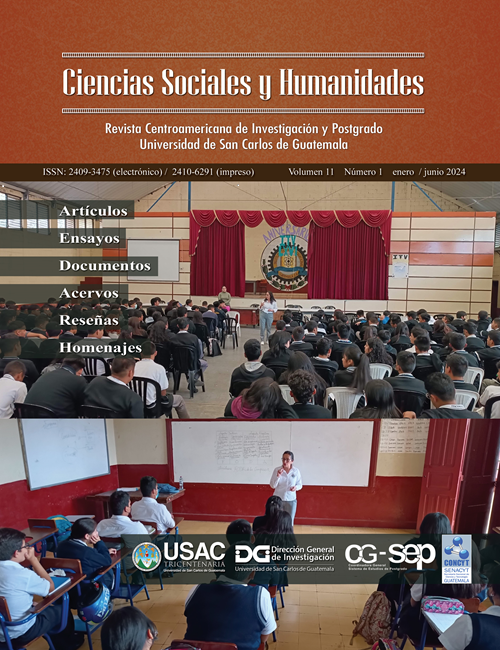Grief in a pandemic. Functional analysis of complicated grief
DOI:
https://doi.org/10.36829/63CSH.v11i1.1698Keywords:
Testimonials, clinical psychology, COVID-19, psychotherapy, lonelinessAbstract
In addition to the loss of health and employment, the death of loved ones was a feature of life during the confinement due to the COVID-19 Pandemic. The purpose of this study was to systematize testimonies of mourners who lost a family member to the virus. Within the framework of the qualitative approach and sequential design, 5 volunteers were interviewed who were in complicated grief due to the death of a family member due to COVID-19. As a result, it was identified that social distancing measures made grief live in physical solitude but also subjectively, which was a belief present in the consultants with complicated grief. In contrast, the beliefs that favored the elaboration of grief were related to religion. The behaviors that mobilized the bereaved towards the resolution of the grief were meditation, exercise, and socialization with friends. It is concluded that perceived loneliness and self-reproach are factors present in complicated grief.
Downloads
References
Araujo Hernández, M. A., García Navarro, S., & García-Navarro, E. B. (2021). Abordaje del duelo y de la muerte en familiares de pacientes con COVID-19: Revisión narrativa. Enfermería Clínica, 31, S112-S116. https://doi.org/10.1016/j.enfcli.2020.05.011 DOI: https://doi.org/10.1016/j.enfcli.2020.05.011
Boelen, P. A., & Lensvelt-Mulders, G. (2005). Psychometric Properties of the Grief Cognitions Questionnaire (GCQ). Journal of Psychopathology & Behavioral Assessment, 27 (4), 291-303. https://doi.org/10.1007/s10862-005-2409-5 DOI: https://doi.org/10.1007/s10862-005-2409-5
Boelen, P. A., van den Hout, M. A., & van den Bout, J. (2006). A Cognitive-Behavioral Conceptualization of Complicated Grief. Clinical Psychology: Science and Practice, 13(2), 109–128. https://doi.org/10.1111/j.1468-2850.2006.00013.x DOI: https://doi.org/10.1111/j.1468-2850.2006.00013.x
Busch, A. M., Kanter, J. W., Callaghan, G. M., Baruch, D. E., Weeks, C. E., & Berlin, K. S. (2009). A micro-process analysis of functional analytic psychotherapy's mechanism of change. Behavior Therapy, 40(3), 280-290. https://doi.org/10.1016/j.beth.2008.07.003 DOI: https://doi.org/10.1016/j.beth.2008.07.003
Corr, C. A. (1993). Coping with dying: Lessons that we should and should not learn from the work of Elisabeth Kübler-Ross. Death studies, 17(1), 69-83. https://doi.org/10.1080/07481189308252605 DOI: https://doi.org/10.1080/07481189308252605
Cruz Gaitán, J. I., Reyes Ortega, M. A. Corona Chávez, Z. I. (2017). Duelo: tratamiento basado en la terapia de aceptación y compromiso (ACT). El Manual Moderno.
Díaz, C., Abal, Y. N., Climent, J. A., Ortega, E., López-López, M. J., & Casado, J. (2016). Pérdida y afrontamiento en desempleados: adaptación del Inventario Texas Revisado de Duelo a la situación de pérdida de empleo. Revista Iberoamericana de Diagnóstico y Evaluación-e Avaliação Psicológica, 2(42), 111-124. https://doi.org/10.21865/RIDEP42_111 DOI: https://doi.org/10.21865/RIDEP42_111
Faschingbauer, T., Zisook, S., & DeVaul, R. (1987). The Texas Revised Inventory of Grief. En S. Zisook (Ed.), Biopsychosocial aspects of bereavement (pp.111-124). American Psychiatric Press.
Freud, S. (1992). Duelo y melancolía. En J. Strachey (Ed.), Obras completas (1914–1916, vol. 14, pp. 235-256). Amorrortu editores. (Obra original publicada en 1917)
García-García, J. A., & Landa, V. (2001). ¿ Es posible medir el duelo? Adaptación al castellano y validación del Inventario de Experiencias en Duelo (IED) y del Inventario Texas Revisado de Duelo (ITRD). Psiquiatria. com, 5(1).
Limonero García; J. T., Lacasta Reverte, M., García García, J. A., Maté Méndez , J., Prigerson, H. G. (2099). Adaptación al castellano del inventario de duelo complicado Adaptación al castellano del inventario de duelo complicado. Medicina Paliativa, 16(5), 291-297.
Lacasta-Reverte, M. A., Zarcero, M. T., López-Pérez, Y., Sanchidrián, D. C., Manrique, T. P., Sanmartín, C. C., González, C. R., Rosado, L. B., Gutiérrez, N. I., Bermejo, E. V., Varela, D. T., & Martí-Esquitino, J. (2020). Impacto emocional en pacientes y familiares durante la pandemia por COVID-19. Un duelo diferente. Medicina Paliativa, 27(3). https://doi.org/10.20986/medpal.2020.1188/2020 DOI: https://doi.org/10.20986/medpal.2020.1188/2020
Martínez-Folgar, K., Alburez-Gutierrez, D., Paniagua-Avila, A., Ramirez-Zea, M., & Bilal, U. (2021). Excess mortality during the COVID-19 pandemic in Guatemala. American journal of public health, 111(10), 1839-1846. https://doi.org/10.2105/AJPH.2021.306452 DOI: https://doi.org/10.2105/AJPH.2021.306452
Martín-Moreno, J. (2020). La pandemia de la COVID-19: Breve relato siguiendo la estructura de las etapas del duelo y soñando con un mundo mejor. Medicina Preventiva, 25(1–2), 5-14.
Moriconi, V., & Valero Calvo, E. (2020). El duelo durante la pandemia de COVID-19. Mente y cerebro, 103, 30.
Muñoz Berríos, M. (2020). Abordaje de los Procesos de Duelo. Revista Caribeña de Psicología, 4(3). https://doi.org/10.37226/rcp.v4i3.4841 DOI: https://doi.org/10.37226/rcp.v4i3.4841
Puigarnau, A. P. (2011). Las tareas del duelo: Psicoterapia de duelo desde un modelo integrativo-relacional. Paidós.
Méndez Salazar, M. L., Anzoátegui Rueda, I. N., Gómez Márquez, Y. M., González Acevedo, O. E., López Murillo, N., Cardona, L. A., Ospina, L. M., & Umaña Cristancho, S. E. (2021). El proceso de duelo ante la muerte de familiares en tiempos de pandemia por el COVID-19. El Hilo Analítico, 7(12), 9-20. https://revistas.uan.edu.co/index.php/hilo_analitico/article/view/866
Prigerson, H. G., Maciejewski, P. K., Reynolds, C. F., 3rd, Bierhals, A. J., Newsom, J. T., Fasiczka, A., Frank, E., Doman, J., & Miller, M. (1995). Inventory of Complicated Grief: a scale to measure maladaptive symptoms of loss. Psychiatry research, 59(1-2), 65–79. https://doi.org/10.1016/0165-1781(95)02757-2 DOI: https://doi.org/10.1016/0165-1781(95)02757-2
Sociedad Española de Cuidados Paliativos. (2020). Recomendaciones para familiares para la despedida y el duelo ante la presencia del Covid-19. SECPAL. https://www.secpal.org/recomendaciones-para-la-despedida-y-el-duelo-familiar-ante-la-epidemia-de-covid-19recomendaciones-para-la-despedida-y-el-duelo-familiar-ante-la-epidemia-de-covid-19/
Worden, J. W., Aparicio, Á., & Barberán, G. S. (2013). El tratamiento del duelo: Asesoramiento psicológico y terapia. Paidós.
Downloads
Published
How to Cite
Issue
Section
License
Copyright (c) 2024 Juan José Azurdia Turcios

This work is licensed under a Creative Commons Attribution-NonCommercial-ShareAlike 4.0 International License.
El autor que publique en esta revista acepta las siguientes condiciones:
- El autor otorga a la Dirección General de Investigación el derecho de editar, reproducir, publicar y difundir el manuscrito en forma impresa o electrónica en la revista Ciencias Sociales y Humanidades.
- La Direción General de Investigación otorgará a la obra una licencia Creative Commons Atribución-NoComercial-CompartirIgual 4.0 Internacional.










